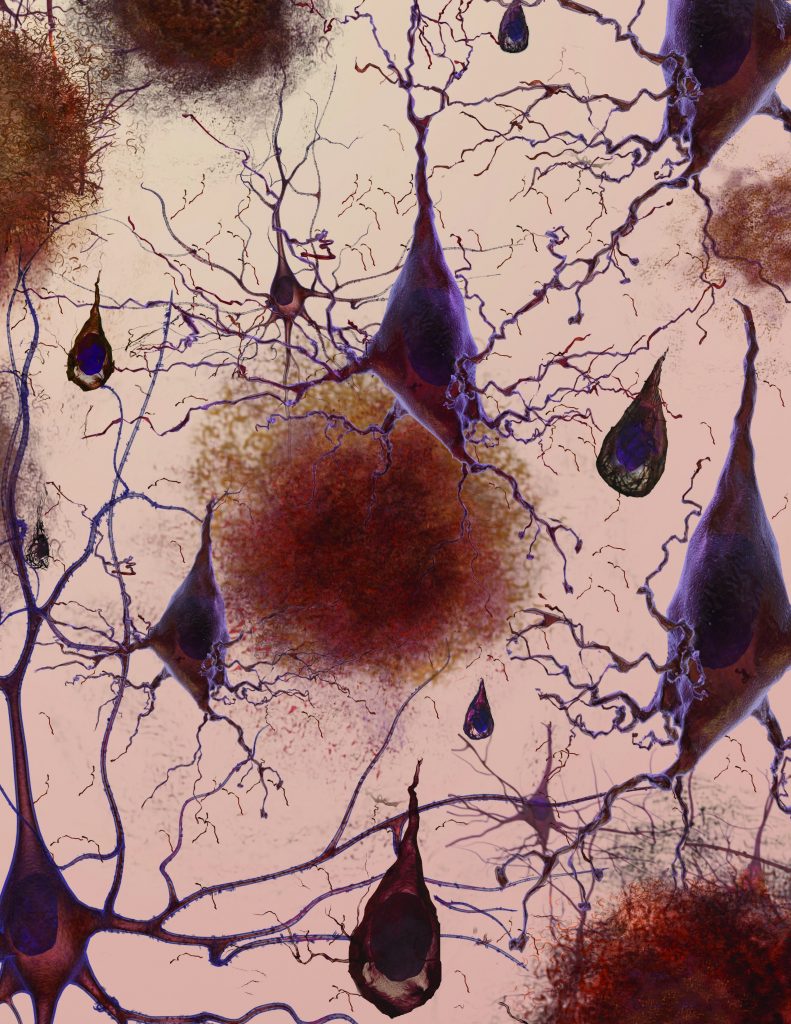Neuroscientists show that HDAC2 enzyme could be a good target for new drugs.
MIT neuroscientists have shown that an enzyme overproduced in the brains of Alzheimer’s patients creates a blockade that shuts off genes necessary to form new memories. Furthermore, by inhibiting that enzyme in mice, the researchers were able to reverse Alzheimer’s symptoms.
The finding suggests that drugs targeting the enzyme, known as HDAC2, could be a promising new approach to treating the disease, which affects 5.4 million Americans. The number of Alzheimer’s victims worldwide is expected to double every 20 years, and President Barack Obama recently set a target date of 2025 to find an effective treatment.
Li-Huei Tsai, leader of the research team, says that HDAC2 inhibitors could help achieve that goal, though it would likely take at least 10 years to develop and test such drugs.
